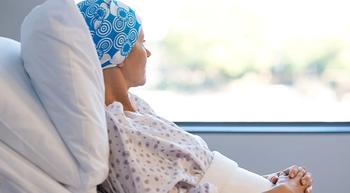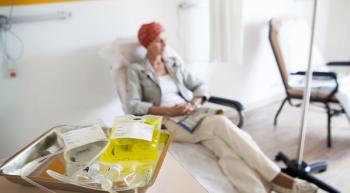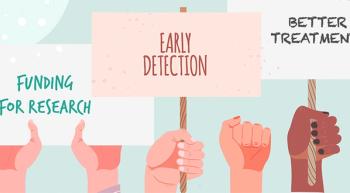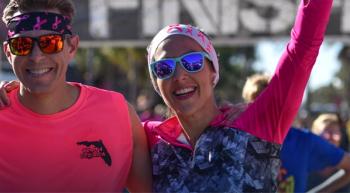
October is Breast Cancer Awareness month and is deeply associated with the color pink, but it wasn't always like that. Here's how the breast cancer awareness movement began.

October is Breast Cancer Awareness month and is deeply associated with the color pink, but it wasn't always like that. Here's how the breast cancer awareness movement began.

Stephanie Walker, who was diagnosed with metastatic breast cancer in 2015, recalls how her disease has pulled the rug out from underneath her.

Treatments like kinase inhibitors are changing the options patient may have for when their breast cancer spreads to the brain.

Susan Swanson, who was diagnosed with metastatic breast cancer in 2014, says it’s very important for patients to surround themselves with a good support network.

Kirby Lewis, who was diagnosed with breast cancer in 2012 and whose disease metastasized in 2016, says his diagnosis helped his care team detect a heart condition.

“The future is not yours,” says Pam Haldeman, who has metastatic breast cancer. “A way to get back a little bit of control is to be your own advocate and get aggressive in researching and going to every conference or retreat available.”

The breast cancer patient advocacy movement that started in the 1950s pulled the disease out of the shadows, bringing patients’ options to light.

Two women living with metastatic breast cancer that has spread to the brain describe the tools that are helping to keep them alive.

“Most kinds of breast cancer are potentially curable, but metastatic breast cancer is not,” says Kathleen Friel, lab director at the Burke Neurological Institute of Weill Cornell Medicine. “People assume, ‘Oh, you must be fine because you look fine.’ It puts a lot of expectations on us that, if somehow we’re strong enough, then we’ll beat this disease.”

A group extends a hand to those affected by breast or reproductive cancers, especially younger previvors, patients and caregivers.

Can mastectomy or lumpectomy be avoided in women with ductal carcinoma in situ?

Helping underserved women at the community level can be a crucial step toward reducing deaths from late-stage breast cancer. A grassroots initiative in Florida aims to contribute to that change and inspire the formation of similar groups.

Organized as a virtual event, the DONNA Foundation’s 2021 National Marathon to Finish Breast Cancer will allow participants to run in their neighborhoods — or on their treadmills.

How does a metastatic cancer diagnosis affect families, especially children? CURE® spoke with Kate Watson, a patient ambassador for METAvivor, about the tricky balance of protecting and empowering kids.

Just one week of radiation therapy after surgery for early-stage breast cancer is as safe and effective as longer courses, researchers report.